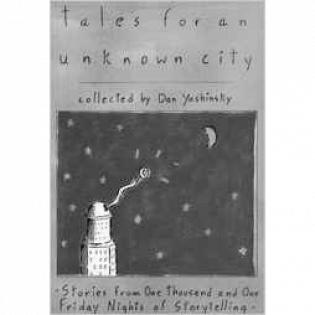Soup of the Soup
Tell me a story...
Storyteller Celia Lottridge writes: “When my mother was a small girl she lived in a mission compound in the north-western part of Persia. This meant that she grew up with Mullah Nasrudin. The Turkish people in the area called him Nasrudin Hodja, but to the Persians he was Mullah and he was part of everyday life. There was a Mullah Nasrudin story for every household and village situation, and I think that the Mullah was more like a neighbour than a piece of folklore.
My mother, who returned to North America at the age of nine, certainly referred to him casually more than she told stories about him. “Mullah Nasrudin would call this the soup of the soup,” she would say when leftovers appeared for the third time on our dinner table.
One evening Nasrudin Hodja and his wife were just sitting down to dinner when there came a knock on the door. The Hodja opened the door to find his good friend Hassan from the next village standing on the doorstep. In Hassan’s hands was a fine rabbit.
“Hodja,” said Hassan, “I have brought you a gift.” And he handed the rabbit to the Hodja.
This was indeed a fine gift. “Come in, come in!” said the Hodja. “We will cook the rabbit. We will make a pilaf. We will have a feast.”
And they did. The Hodja’s wife was a very fine cook. The rabbit and all that went with it was delicious. The Hodja told stories. Hassan laughed. And when Hassan had gone home, the Hodja was pleased to be able to say to his wife, “There is plenty of rabbit and plenty of rice left. We will have rabbit pilaf tomorrow.”
But the next evening, just as they were about to sit down to this fine meal, there was a knock at the door. When the Hodja opened the door, there stood a man he recognized as a neighbor of Hassan’s. The Hodja observed that he carried nothing in his hands.
“Greetings, Hodja,” he said. “I am a friend of Hassan from the village.”
Now, the Hodja knew the custom of hospitality. “Come in,” he said. “We were just about to eat our evening meal.”
The meal was very good, for the Hodja’s wife was indeed a good cook, but the Hodja did not tell quite so many stories. There was not as much laughter and the guest left soon after dinner.
The Hodja looked at the platters. “There are still the bones of the rabbit,” he said, “and plenty of rice and vegetables to make a fine soup.”
All the next day the Hodja’s house smelled of the wonderful soup that was cooking, and in the evening the Hodja and his wife sat down to eat it with good appetites. But just as they picked up their spoons, there was a knock at the door.
The Hodja opened the door, and found on the doorstep a man who looked faintly familiar. “I am a friend of the friend of Hassan from the village,” he said in a friendly voice.
The Hodja thought of how he had hoped to eat two bowls of that good soup which the man on the doorstep appeared to be smelling with pleasure. However, hospitality is a duty: so he said, “Come in. We were just about to eat our soup.”
The guest appeared to enjoy the soup very much, but the Hodja was unusually quiet and he did not object when the man left as soon as he had eaten. He looked into the soup pot and found one large spoonful of soup. “Tomorrow,” he said, “I will prepare the evening meal. I will take care of everything.”
The next day there were no good smells of cooking in the Hodja’s house and the Hodja and his wife did not sit down to eat at their accustomed time. But there came a knock on the door.
The Hodja flung open the door. Standing on the doorstep he saw a stranger, someone he had never seen before. But the man was smiling. “I am a friend of the friend of the friend of your friend Hassan,” he said.
“Indeed,” said the Hodja. “Well, you must come in and share my meal.”
“I would like that very much,” said the stranger. So the Hodja led him to the table. The man sniffed the air.
“Don’t worry,” said the Hodja. “I was just going to fetch the food.” He went into the kitchen and scooped the spoonful of soup from the bottom of the pot. He carefully divided it between two bowls, filled each bowl up with hot water from the kettle, and carried the bowls to the table. He set one in front of the stranger and one in front of himself. Then he sat down and smiled happily at the man.
The man gazed into his bowl. It contained a clear liquid with two grains of rice and a shred of carrot floating in it.
The Hodja spoke: “O friend of the friend of the friend of my friend Hassan, here is the soup of the soup of the bones of the rabbit.”
The next night the Hodja and his wife sat down to eat alone, in peace.
“Soup of the Soup.” Yashinsky, Dan (collected by). Tales for an Unknown City: Stories from One Thousand and One Friday nights of Storytelling, Montreal and Kingston: McGill-Queen’s University Press, ©1990. pp. 17-19.
Used with the permission of Celia Lottridge.
